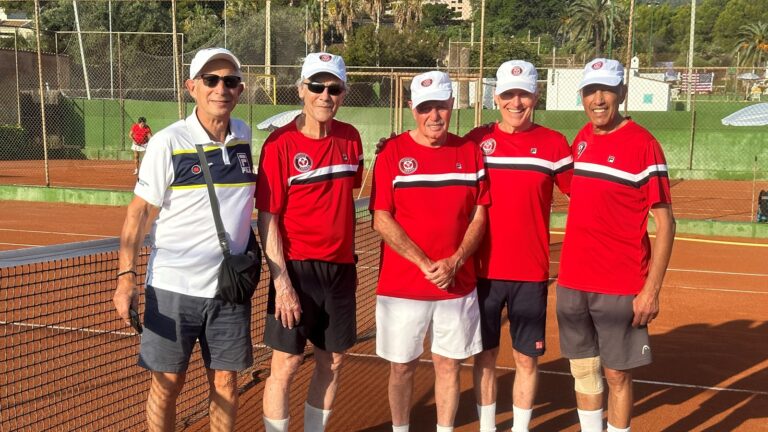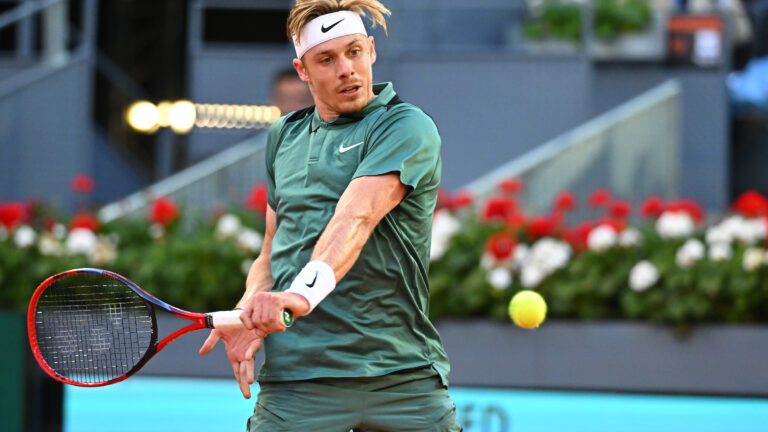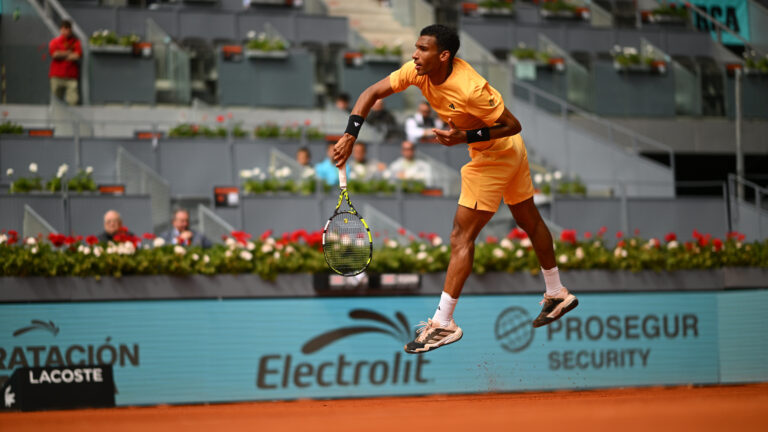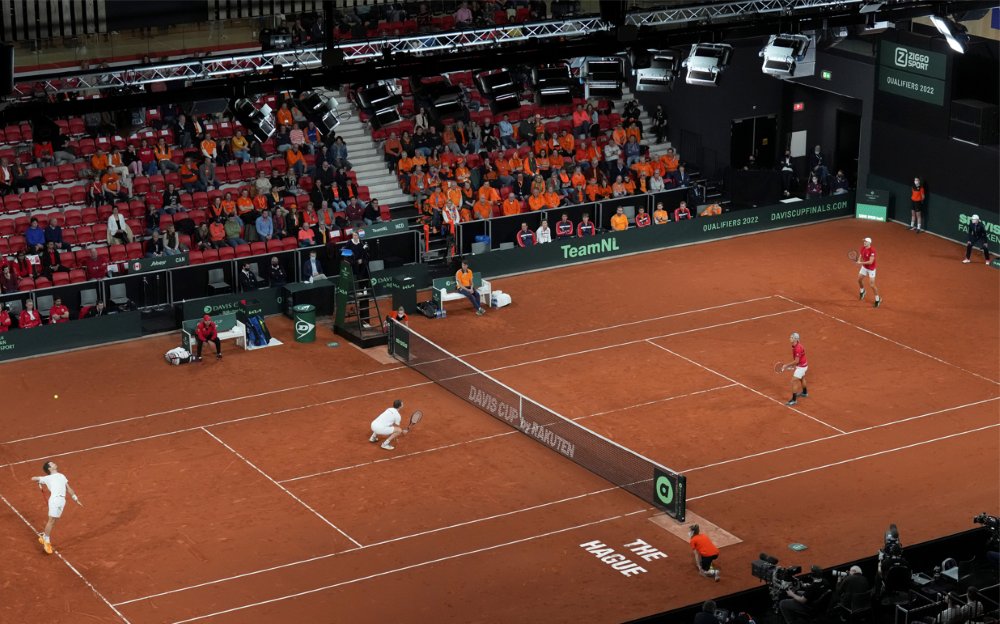
The odds were stacked against Canada – in its Davis Cup tie against the Netherlands as well as in Saturday’s doubles match – and that’s how things finally played out.
With the 7-5, 6-3 victory by Dutchmen Wesley Koolhof and Matwe Middlekoop over Peter Polansky and Brayden Schnur, the Netherlands team prevailed 3-0 in the best-of-five match Qualifier in The Hague.
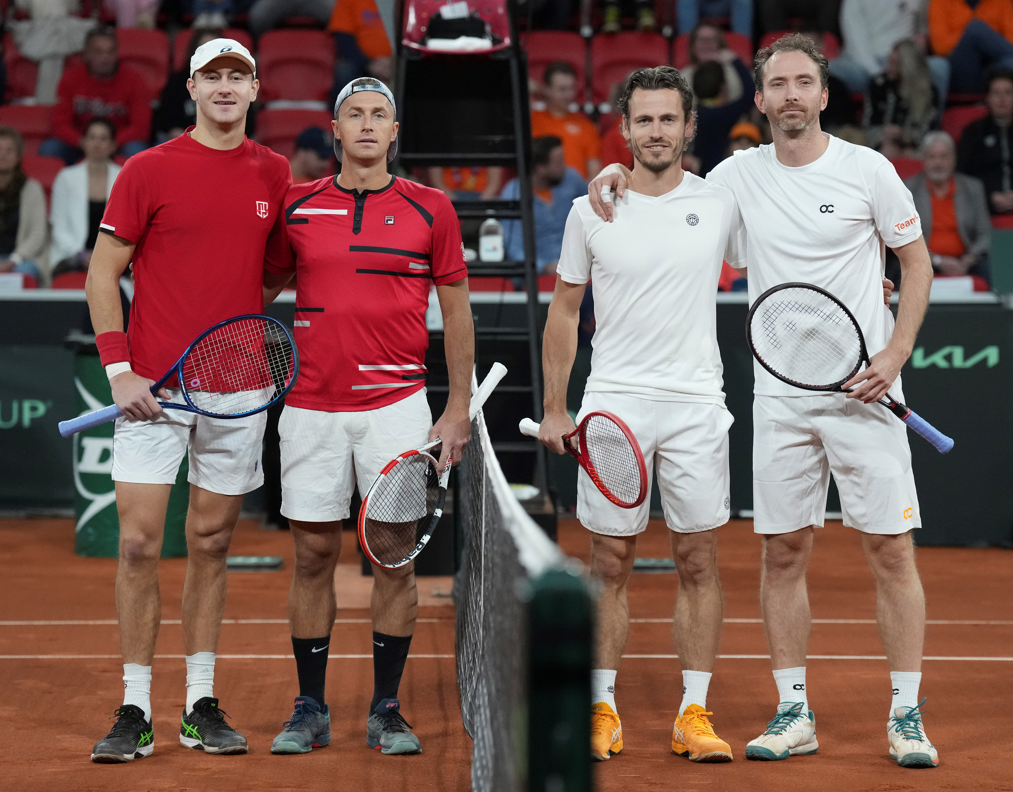
The match was competitive right up until the final game of the first set. Polansky and Schnur survived four break points in the second game on Schnur’s serve and seven overall before Koolhof and Middlekoop finally converted on the eighth at 30-40 in the 12th game on the Polansky serve. But even that point wasn’t easy for them – Polansky hit an excellent serve to Middlekoop’s forehand and he slammed an absolute cracker return down the line to end the 52-minute first set.
Koolhof and Middlekoop broke the Schnur serve in the second game of the second set and made it hold up for the win.
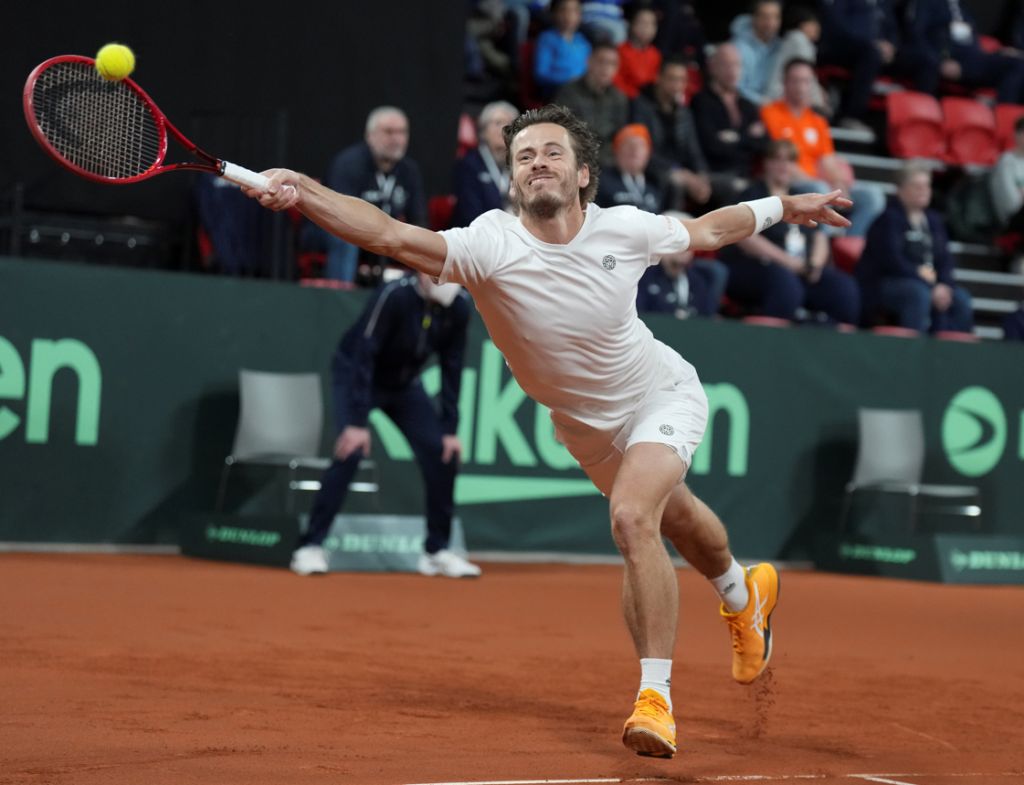
Koolhof (above) was the first star of the match, serving with precision – the Dutch team won 94 per cent of first-serve points in the opening set – and returning with creativity as well as volleying well. It was only logical that with his No. 18 ATP doubles ranking and Middlekoop at No. 28, they were prohibitive favourites over Polansky at No. 175 and Schnur at 381.
In a way the fate of the tie was in the cards well before it even began – not only was the Dutch team playing at home and able to select the surface (red clay) that would be least favoured by the visiting Canadian players, but there was the glaring absence of world No. 9 Félix Auger-Aliassime, No. 13 Denis Shapovalov and No. 139 Vasek Pospisil for the visitors.
It was unfortunate the three elected not to play but, with the unrelenting demands of the worldwide pro tour, players have to make choices. The BNP Paribas Open in Indian Wells starts on Tuesday (qualifying), so it was always going to be difficult, especially for Auger-Aliassime and Shapovalov, to play indoors on clay just days before having to start a Masters 1000 event outdoors on hard courts.
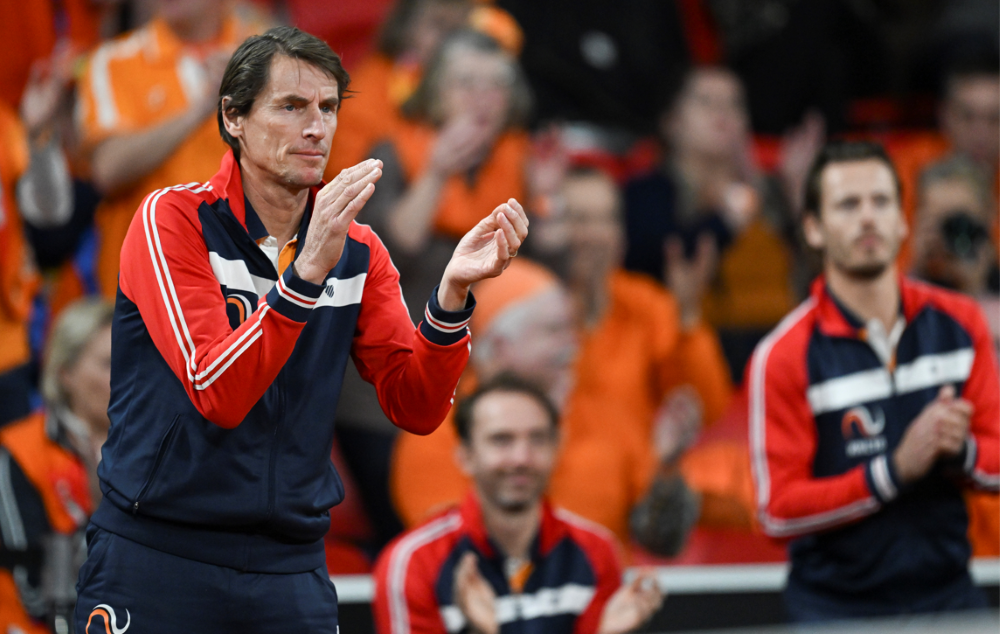
On the eve of the Canada – Netherlands match-up, Dutch captain Paul Haarhuis, the former world No. 1 in doubles and himself a participant in 27 Davis Cup ties as a player, gave his analysis of the match-up.
“With the strongest possible team (i.e. Auger-Aliassime and Shapovalov) for the Canadians – we were far from being favourites, we would be very much the underdog,” Haarhuis said. “But now the situation is completely (turned) around and we are the favourites and the Canadians are by far the underdogs.
“The line-up really changes how it looks with the rankings. Let’s say the Canadians would come with Félix and with Shapo, we would still think it’s possible. And if we play well we have a shot in every match – to win three matches sure. It would be very difficult, but we believe we could do that.
“And I would think that the Canadians are in the same position now ‘okay it’s going to be very difficult, but each match we have a shot at it, so it’s possible.’”
Captain Frank Dancevic’s squad did have their shots – No. 332-ranked Alexis Galarneau (below) was right in both sets of his 7-5, 7-6(9) loss to world No. 48 Botic van de Zandschulp in the first match on Friday and No. 294 Steven Diez had moments when he threatened No. 54 Tallon Griekspoor in his 6-4, 6-4 defeat.
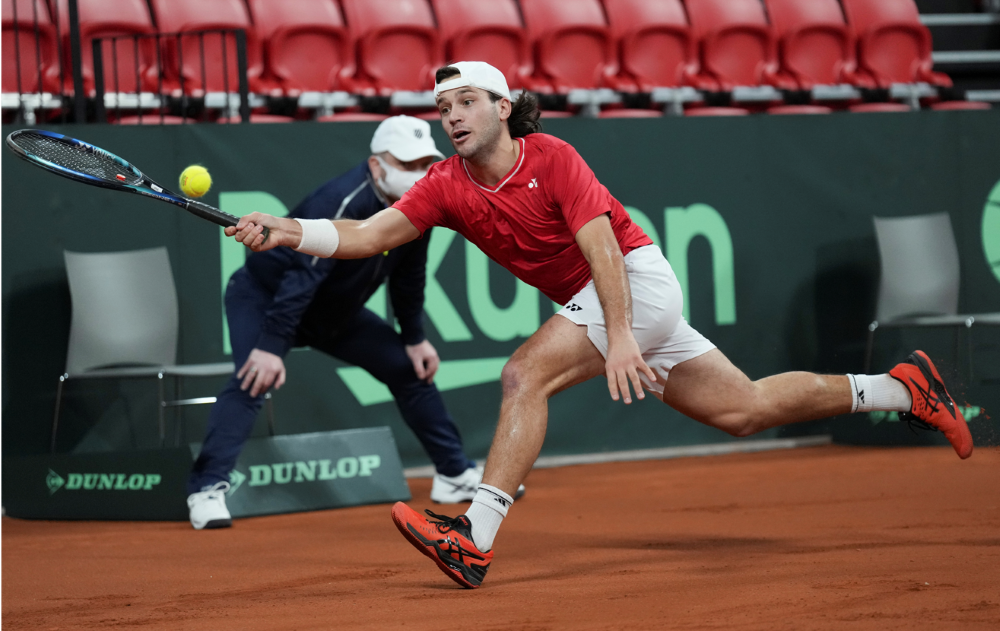
In the fourth match after the Dutch took an insurmountable 3-0 lead in the tie at the Sportcampus Zuiderpark, veteran Robin Haase defeated Diez 6-1, 6-2.
“We knew it would be a difficult task coming into this weekend against the Netherlands,” Dancevic summed up. “We had a few moments where the momentum could have turned our way but unfortunately, it wasn’t meant to be. The Dutch played very well and deserved the victory. Thank you to all our Canadian fans for all the support! We will regroup and come back stronger for the next tie in September.”
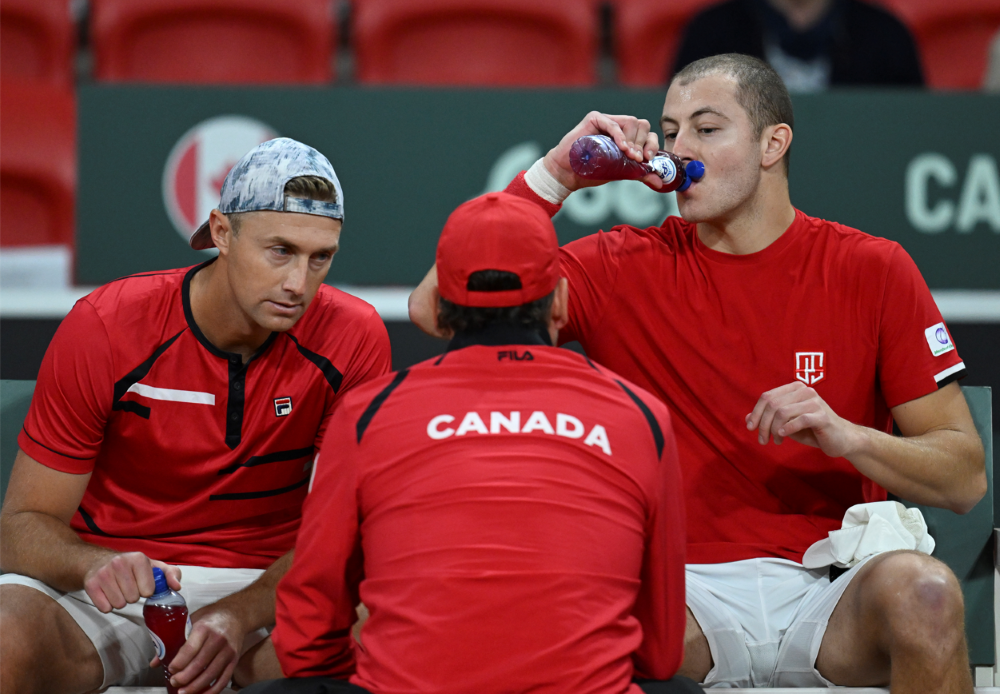
With the loss, Canada will not be in the top group of Davis Cup for the first time since 2011, the year it made the elite 16-nation World Group when a tireless Vasek Pospisil led his team to a 3-2 victory over Israel in Ramat Hasharon.
So a decade – 2012 to 2021 – comes to an end.
Now Canada will play in a World Group I Playoff the weekend of September 16-17 in a match-up at home or away still to be determined. A win there will earn Canada a spot in the same Qualifiers as this weekend next year, vying for a spot in the 2023 Davis Cup Finals.
A loss in September would mean being relegated to World Group II in 2023 with the earliest it could again play in the Davis Cup Finals being in 2024.
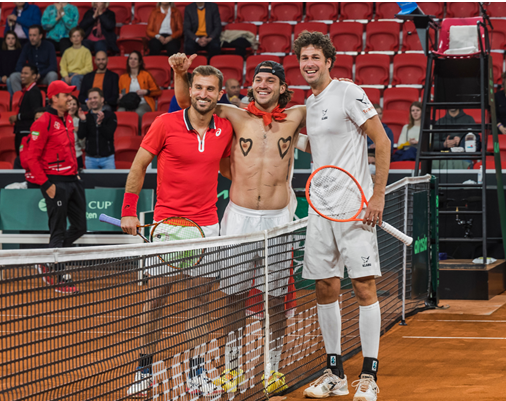
There was a moment of levity before the Diez – Haase match when Galarneau had to undergo the traditional Davis Cup team rookie initiation. In his case, it was to run around the court shirtless draped in a Canadian flag. He also took part in the pre-match coin toss at the net before Diez – Haase began – with even the Dutch players in on the fun.
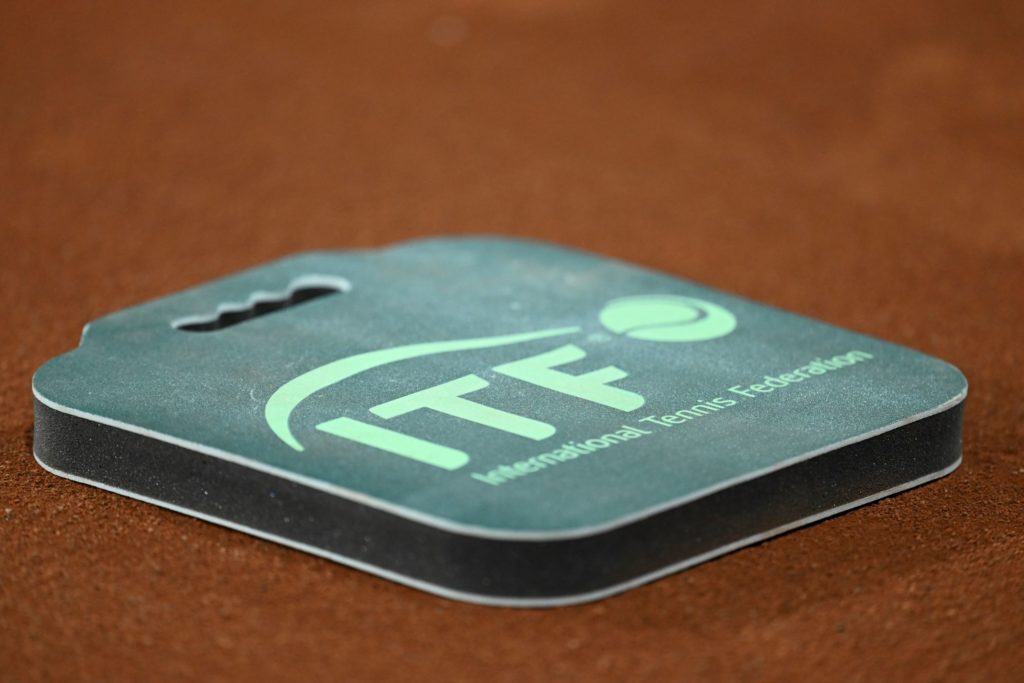
Feature Photo: Martin Sidorjak
